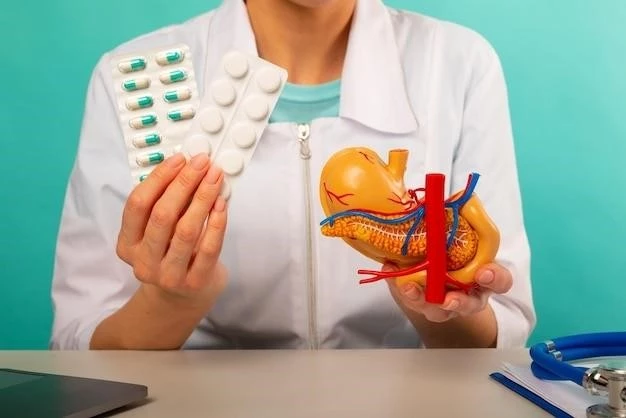Introduction to Drugs for Too Much Stomach Acid
Drugs for too much stomach acid, such as antacids, H2 blockers, and proton pump inhibitors, are commonly used to treat conditions like GERD and ulcers. They work by reducing the production of acid in the stomach, providing relief from symptoms like heartburn and indigestion.
Uses of Drugs for Too Much Stomach Acid
Drugs for too much stomach acid are utilized to treat conditions like gastroesophageal reflux disease (GERD), peptic ulcers, and Zollinger-Ellison syndrome. They help alleviate symptoms such as heartburn, acid reflux, and stomach pain, promoting healing of the digestive tract.
Side Effects of Drugs for Too Much Stomach Acid
Common side effects of drugs for excess stomach acid include constipation, diarrhea, headaches, and nausea. In rare cases, more severe side effects like allergic reactions or kidney issues may occur. It’s essential to consult a healthcare provider if experiencing concerning side effects.
Overview of Helicobacter pylori Infection
Helicobacter pylori is a bacterium that infects the stomach, causing various gastrointestinal issues like gastritis and peptic ulcers. It is a common infection worldwide and can lead to more serious conditions if left untreated. Testing and treatment are crucial for managing this infection.
Components of Triple Therapy
Triple therapy for H. pylori infection typically consists of a proton pump inhibitor (such as Lansoprazole), clarithromycin, and amoxicillin. This combination helps eradicate the bacteria and promote healing of the stomach lining, reducing the risk of recurrent ulcers and associated complications.
Side Effects of Triple Therapy (Amoxicillin/Clarithromycin/Lansoprazole)
Common side effects of triple therapy for H. pylori include nausea, diarrhea, abdominal pain, and altered taste sensation. Less common but severe side effects may include allergic reactions, severe skin rash, or liver problems. It’s vital to report any concerning symptoms to a healthcare provider promptly.

Understanding Adverse Events
Adverse events of triple therapy for H. pylori infection refer to unwanted or harmful reactions that may occur during or after treatment. These events can range from mild side effects to severe complications, highlighting the importance of closely monitoring patients undergoing this regimen.
Management of Adverse Events
Effective management of adverse events during triple therapy involves close monitoring of patients, prompt medical intervention when needed, and potential adjustments to the treatment regimen. Patients should communicate any concerning symptoms to their healthcare providers for proper evaluation and management.
Introduction to Triple Paste
Triple Paste is a medicated ointment used for treating diaper rash. It forms a protective barrier on the skin, helping to soothe and heal irritated areas. This product is commonly recommended for babies and infants with sensitive skin to prevent and alleviate diaper rash discomfort.
Uses of Triple Paste
Triple Paste is mainly used to treat and prevent diaper rash in infants and young children. It helps alleviate redness, irritation, and discomfort caused by prolonged exposure to wetness in the diaper area. Regular application of Triple Paste can promote healing and maintain healthy skin in these sensitive areas.
Side Effects of Triple Paste
Common side effects of Triple Paste may include temporary skin irritation, redness, or mild burning sensation upon application. In rare cases, allergic reactions like rash or itching may occur. It is advisable to perform a patch test and consult a healthcare provider if unusual or severe reactions develop.
Overview of Inhaled Sympathomimetic Drugs
Inhaled sympathomimetic drugs are bronchodilators commonly used to treat conditions like asthma and chronic obstructive pulmonary disease (COPD). They work by relaxing the muscles in the airways, making it easier to breathe. However, these drugs can have cardiovascular effects that may include increased heart rate, palpitations, and potential blood pressure changes.
Risks and Considerations
When using inhaled sympathomimetic drugs, it is important to be aware of potential risks such as increased heart rate, tremors, and interactions with other medications. Patients with pre-existing cardiovascular conditions should consult their healthcare provider for personalized advice and monitoring to minimize risks and ensure safe and effective use of these medications.
